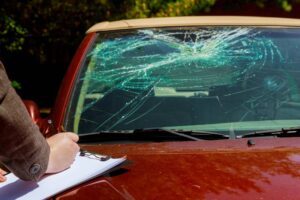You may be involved in a car accident. As a driver, you know what to do next, like checking for injuries and calling for help.
While knowing what to do in the event of an accident is vital, understanding what not to do is equally important.
You may be subject to legal penalties, have your rights compromised, or receive less money from insurance companies as a result of certain activities.
In Florida, the aftermath of a car accident requires careful steps to ensure you protect yourself legally and financially.
Car accident attorneys with experience in West Palm Beach have a long history of defending the rights of accident victims.
Here are 8 critical mistakes you should avoid after a car accident.
1. Leave the Scene
Leaving the scene of an accident, especially if there are injuries or significant property damage, is not only morally wrong but also illegal in Florida.
Known as a hit and run, this action can result in severe legal consequences, including criminal charges.
By staying, you fulfill your legal duty by exchanging insurance information with the other party and make it easier for your insurance company to handle your claim.
Furthermore, remaining at the scene allows you to collect evidence and witness statements, which is important for your insurance claim or potential legal battle.
2. Don’t Call 911
You might plan to settle things directly with the other driver, especially if the accident seems minor. However, not calling 911 is a mistake.
Police reports serve as an official record of the accident, detailing what happened and who was involved. This document can be important when dealing with insurance companies or if the case proceeds to court.
Meanwhile, police can ensure that traffic flow is managed safely around the accident scene prevent further accidents, and ensure the safety of all involved.
3. Deny Any Injury and Don’t Get Medical Treatment
After an accident, you might feel fine and choose to tell police officers, witnesses, or the other party involved that you’re uninjured.
While this might seem like a good idea at the moment, it can bring problems to you.
Injuries from car accidents, such as whiplash or concussions, often have delayed symptoms, and can have severe, long-term consequences if not treated.
Denying any injury right after the accident can complicate your ability to claim compensation for medical expenses once those injuries become apparent.
Imagine if you find yourself injured after leaving the scene, Suddenly, you’re in a position where you have to prove that the injuries were a direct result of the accident. So you need to avoid making definite statements about your health at the scene.
Instead, opt to say you’ll seek a medical evaluation to assess any potential injuries. Such an approach will help you if you find any late-appearing injuries.
When see a doctor, your doctor will record any injuries you have, which is helpful for insurance claims or legal action.
4. Saying You Are Sorry or Admit the Crash Was Your Fault
After an accident, when you’re feeling shocked or stressed, you might want to say sorry or admit you were at fault, especially if you think it was your fault.
However, it’s important to avoid making any statements about fault at the accident scene. In the heat of the moment, you might not have a clear understanding of what exactly happened or who is actually at fault.
Saying you’re sorry or admitting the crash was your fault can be mistakenly interpreted as an admission of legal liability, which can largely affect the outcome of insurance claims and legal proceedings.
Florida operates under a comparative negligence system, meaning that the fault is not always clear cut and can be shared between parties.
Statements made at the scene, without the benefit of a full investigation, can unfairly prejudice your case. Instead, focus on ensuring everyone’s safety and exchanging information without discussing fault.
5. Don’t Collect the Other Party’s Insurance Information
Another one crucial step that should never be overlooked is collecting the insurance information from the other party involved in the accident. This includes their name, address, phone number, insurance company name, policy number, and the vehicle’s license plate number.
Without this information, it can become significantly more challenging to file a claim with your insurance company or take legal action if needed.
Additionally, it’s also beneficial to take photos of the accident scene, the damage to all vehicles involved, and any visible injuries. As you know, visual evidence can be invaluable during the claims process or in court.
6. Don’t Notify Your Insurance Company
You’ll make your claim complicated if you don’t inform your insurance company about your accident.
Most insurance policies include a clause requiring policyholders to report any incidents in a timely manner. Not doing so can give your insurance company grounds to deny your claim, leaving you financially responsible for damages and medical costs.
Therefore, it’s important to contact your insurance agent as soon as possible after the accident, even if you believe the other driver was at fault. Not only does this initiate the claims process, but it also allows your insurer to start gathering information and evidence to support your case.
7. Sign a “Quick-Hit” Release
After a car accident, especially one that seems minor, you might be approached by an insurance adjuster offering a quick settlement.
However, signing a release form too quickly, often without fully understanding the extent of your damages or injuries, can severely limit your ability to receive adequate compensation later.
These “quick-hit” releases are designed to close the case quickly and economically—for the insurance company. Before signing anything, you need to fully assess the damage to your vehicle, wait to see if any injuries develop, and consult with a legal professional who can advise you on the fairness of the offer.
Quick settlements may cover immediate costs but often fail to account for long-term expenses, such as ongoing medical treatment, rehabilitation, or lost earnings due to time off work. Take your time to understand the full scope of the accident’s impact on your life before agreeing to any settlement.
8. Speak to an Insurance Adjuster
While it’s necessary to cooperate with insurance companies, speaking to an adjuster without preparation can be a mistake. Keep in mind that insurance adjusters work for the insurance company, not for you, and their goal is to save their company money.
Anything you say can be used to minimize your claim. You’d better to be cautious about the information you share, especially regarding fault or injuries.
Before giving a recorded statement or discussing specifics, it might be wise to consult with an attorney who can guide you on what information is necessary to share and what might be kept private.
Conclusion
Deal with a car accident can be overwhelming, but knowing what not to do is just as critical as knowing the right steps to take.
By avoiding the above common mistakes, you can guarantee your rights are protected, and you position yourself for the best possible outcome regarding insurance claims and legal proceedings.






